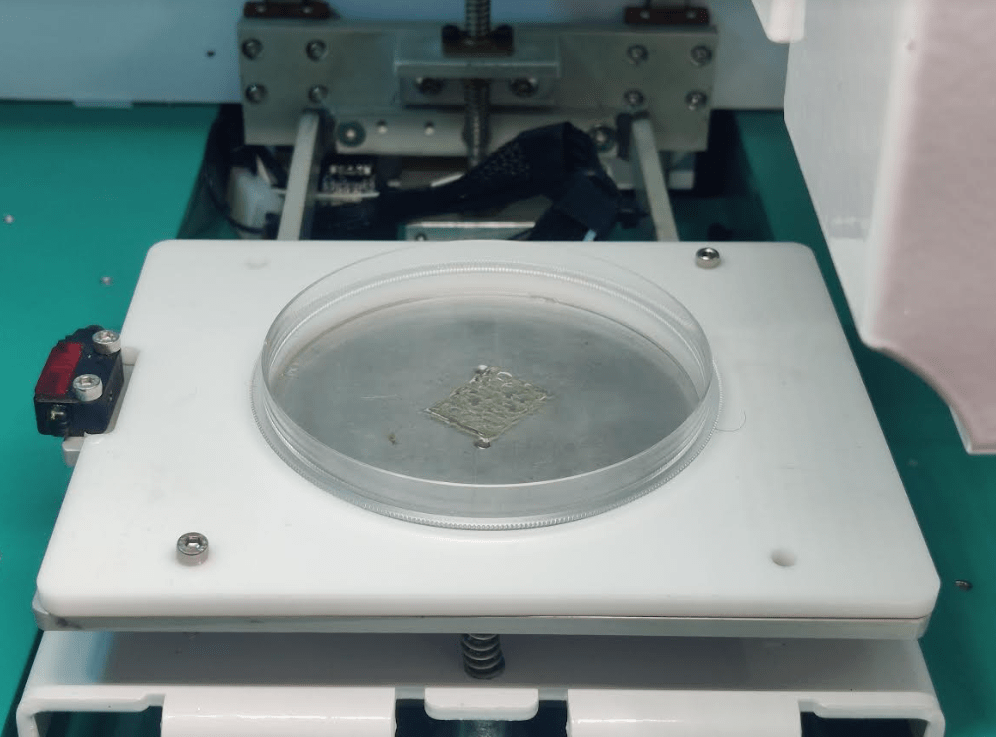New Delhi, Nov 18th (India Science Wire): Bio-printing is a method of tissue replication that temporarily or permanently supports and nurtures living cells. This technique is a potential alternative to organ transplantation, which could be useful in manufacturing functional human tissues such as skin by using specifically engineered biomaterials or bio-inks to print artificial living tissues.
An indigenous state-of-the-art 3D Bio-Printer ‘Mito Plus’ launched by Indian Tech Startup Avay Biosciences has been found to be helpful in printing human tissues. Mito Plus was launched at Bengaluru Tech Summit held between 16th and 18th November 2022. The prototype of Mito Plus was installed at the Indian Institute of Science (IISc), Bangalore, the top-ranked science research institute by NIRF Rankings.
Mito Plus is an advanced version of 3D bio-printer developed with inputs on the prototype from the research lab of Dr Bikramjit Basu at IISc, and developed by Avay which an IIT Madras alumnus co-founded. It is one of the advanced 3D bio-printers in India. Avay Biosciences provides wholly indigenous software and hardware development for end-to-end Bio 3D printing solutions in India.
Manish Amin, Chief Executive Officer, Avay Biosciences, said, “MITO plus is an advanced bio-printer at its price range which can be used to print a wide range of biomaterials. This printer comes up with an inbuilt UV curing option, HEPA filter and effective temperature control features. In this the print-head and the print-bed can be cooled up to four degrees celsius and heated to 80 degrees celsius. MITO plus can be used for pharmaceutical drug discovery and drug testing applications, it can also be used in cancer biology and cosmetology applications.”
Bio-printers work in almost the same way as other 3D printers do, with one major difference i.e instead of delivering materials such as plastic, metal or powders, bio-printers deposit layer of biomaterials, that may include living cells, to build complex structures like skin tissue, liver tissue, etc. 3D bio-printing is a unique gift to humanity through science and technology. However, many challenges are yet to be solved. ‘’There is still a long way to go before we can create fully functioning and viable organs for human transplant,” Amin explained.
“We are working on having our printers develop skin – the most common type of layered tissue that could help victims of severe burns. These tissues can also be used for toxicology screens and other testing mechanisms,” said Suhridh Sundaram, Chief Operating Officer, Avay Biosciences.
Typically bio-printing uses various polymers which attempt to recreate the extracellular matrix (ECM) native to the specific cell. The availability of cost-effective bio-printers is essential in developing artificial organs, since all future research depends on this infrastructure. If animal cells are used, bioprinting can also be utilized to create artificial meat, a space-age food dream.
Apart from premier Research and Development institutions such as IIT Madras and IISc Bangalore, the tech startup’s customers and collaborators include the Institute of Chemical Technology (ICT), Mumbai; National Institute of Pharmaceutical Education And Research (NIPER), Hyderabad; and BITS Pilani (Goa Campus). (India Science Wire)
 Business Sandesh Indian Newspaper | Articles | Opinion Pieces | Research Studies | Findings & News | Sandesh News
Business Sandesh Indian Newspaper | Articles | Opinion Pieces | Research Studies | Findings & News | Sandesh News



